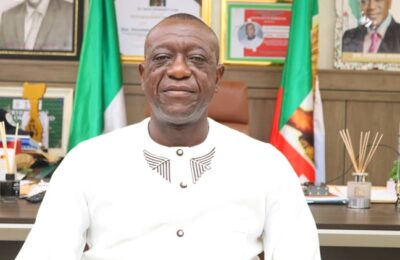Since the formation of the All Progressives Congress (APC) through the merger of legacy parties—ACN, CPC, ANPP, and a faction of APGA—there has been a noticeable dominance of the ACN bloc in key leadership roles, especially the National Chairmanship of the party.
Chief Bisi Akande (ACN) – He served as the first interim National Chairman of the APC immediately after the merger. This set the tone for ACN’s dominance in party leadership.
Chief John Odigie-Oyegun (originally ANPP but aligned with ACN interests) – Succeeded Akande and continued the southern grip on party leadership, with little to no representation from the CPC bloc at the highest level.
Comrade Adams Oshiomhole (ACN) – Another product of the ACN political tradition, further entrenching the marginalization of the CPC in the national leadership structure of the APC.
Senator Abdullahi Adamu (CPC) – Although he hails from the CPC bloc and was eventually appointed, many argue his emergence was highly contested and short-lived. His tenure lacked the full backing CPC loyalists expected, and his abrupt removal reinforced the narrative of tokenism rather than genuine power-sharing.
Instead of using Adamu’s chairmanship to restore balance, the party has returned the position to the ACN camp, sidelining the CPC bloc once again.
The CPC bloc, which played a crucial role in securing the northern vote bank and delivering President Buhari to power, has continuously been underrepresented in APC’s top hierarchy. The National Chairmanship, a strategic position that should reflect the diversity of the party’s roots, has been mostly dominated by the ACN camp—leaving many CPC loyalists feeling alienated and politically shortchanged.
– Comrade Adabara A Adabara writes from Okene, Kogi State.




